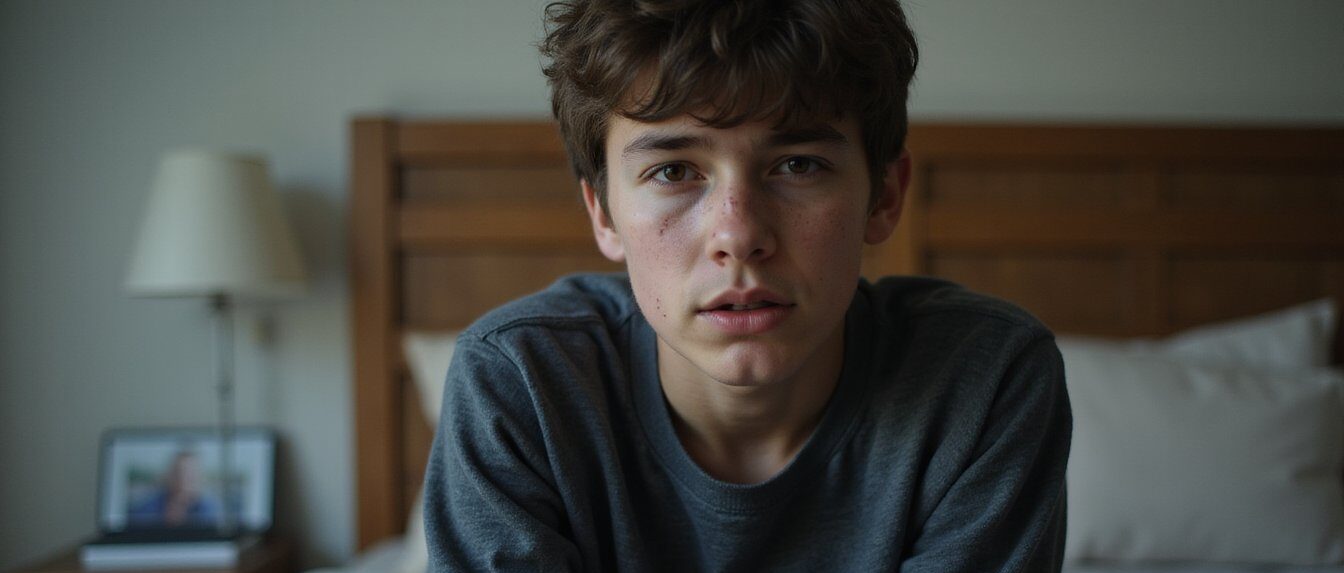You'll find the most effective drug recovery programs in 2025 combine Medication-Assisted Treatment (MAT) with
evidence-based behavioral therapies. These
integrated approaches normalize brain chemistry while addressing psychological and social aspects of addiction, leading to
success rates up to 70% higher than traditional methods. Programs range from extensive residential facilities to flexible outpatient solutions, with options for peer support and family involvement. Understanding your specific treatment needs will help determine the most suitable
recovery path.
Evidence-Based Treatment Options: MAT and Behavioral Therapies
When examining the most effective drug recovery approaches in 2025, Medication-Assisted Treatment (MAT) combined with
behavioral therapies stands at the forefront of
evidence-based care. This integrated care model normalizes
brain chemistry while addressing
psychological and social aspects of addiction, leading to
higher treatment completion rates and
improved outcomes. Research shows that
co-occurring mental disorders significantly increase the likelihood of successful treatment completion. Treatment programs that
increase social functioning help patients rebuild relationships and reintegrate into their communities. A recent longitudinal study revealed that patients who stayed in MAT programs for at least
two years achieved a 70% sobriety success rate after treatment completion. You'll find that MAT's effectiveness is well-documented, showing decreased opioid use, reduced overdose deaths, and lower transmission rates of infectious diseases. When paired with behavioral interventions like cognitive-behavioral therapy and motivational interviewing, these holistic recovery strategies create an extensive treatment framework. The data support this approach, with patients who engage in both MAT and behavioral therapies showing vastly better retention rates and long-term success compared to single-modality treatments.
Comprehensive Residential Recovery Programs
While evidence-based treatments form the foundation of addiction recovery, all-encompassing residential programs represent the most intensive and structured approach available in 2025. You'll find 24/7 professional support, structured daily routines, and comprehensive therapeutic services that typically span 30 days to 2 years. Programs integrate holistic wellness activities alongside evidence-based therapies like CBT and motivational interviewing. Leading facilities like House of Hope Foundation offer
multiple treatment settings, including long-term inpatient, outpatient, residential, and sober living environments. State-operated facilities may provide
free treatment options, though patients often face extended waiting periods.
| Program Component |
Duration |
Average Cost |
| Initial Assessment |
1-2 Days |
$3,000-4,000 |
| Primary Treatment |
30-90 Days |
$42,500 |
| Extended Care |
6-12 Months |
$56,654 |
| Transitional Living |
Monthly |
$1,750 |
| Aftercare Services |
Ongoing |
Varies |
Your treatment plan will include psychiatric care, family education, and vocational rehabilitation. Most facilities offer transitional living options and relapse prevention counseling to support your long-term recovery shift.
Flexible Outpatient Treatment Solutions
Flexible
outpatient treatment solutions offer a viable alternative to
residential care for many individuals seeking addiction recovery. You'll find these programs in 82% of U.S. treatment facilities, with options ranging from standard outpatient care to
intensive programs and
partial hospitalization. Research shows outpatient treatment's effectiveness matches inpatient care, with
50-70% of participants maintaining abstinence during follow-up periods. The approach integrates ongoing monitoring while allowing you to maintain daily responsibilities, as sessions typically require just 1-3 hours per visit. With average costs of $8,386 compared to $50,000+ for residential care, it's much more affordable. Notably,
76% of facilities provide standard outpatient services as their primary treatment option. Many facilities now incorporate mental health integration and medication-assisted treatment, ensuring thorough care. Treatment plans include
core therapy services like individual counseling, group sessions, and family therapy to promote recovery success. You'll benefit from community-based support while accessing
evidence-based treatments that promote sustainable recovery.
Building Strong Support Networks: Peer and Family Programs
A complete
support network forms the cornerstone of
successful addiction recovery, with
peer and family programs demonstrating remarkable effectiveness. You'll find that
peer support groups increase your likelihood of maintaining sobriety by 45% compared to traditional methods alone, while integrating healthcare with family involvement greatly improves treatment adherence and outcomes. The rising prevalence of substance use disorder affects nearly
49 million Americans annually, highlighting the critical need for comprehensive support systems. Community engagement through peer recovery support services (PRSS) provides essential bridges between clinical care and real-world challenges. These groups create a
non-judgmental environment where individuals can freely share their experiences and feelings. While showing promise in addiction treatment,
more rigorous research is needed to fully understand peer support's impact. You'll benefit from trained peer specialists who deliver an average of 23-24 distinct support activities across multiple settings. For students in recovery,
collegiate recovery programs now serve 650,000 individuals nationwide, offering substance-free housing and extensive support services. These programs, combined with
family-based interventions, create a solid foundation for long-term recovery success.
Modern Approaches to Harm Reduction and Prevention
Modern
harm reduction strategies have transformed addiction treatment by prioritizing personalized,
evidence-based interventions over traditional
abstinence-only approaches. You'll find that today's programs integrate flexible residential stays with extensive outpatient services, while incorporating
medication-assisted treatment to reduce opioid-related risks. Federal and state agencies have shifted toward
evidence-based practices as the primary measure of program effectiveness. The movement emerged from
grassroots advocacy in response to the HIV/AIDS crisis of the 1980s. Treatment programs now recognize that
reduced use can significantly improve employment outcomes and quality of life. Community-based initiatives now emphasize
low-threshold access through drop-in centers and culturally relevant interventions that engage local leaders and families. You can access services without strict abstinence requirements, and programs increasingly include staff with
lived experience. Research shows these approaches effectively reduce disease transmission, overdoses, and emergency health incidents. Prevention efforts target multiple risk factors through universal, selective, and indicated programs, while youth education focuses on harm awareness. This
multifaceted strategy has proven more successful than previous one-size-fits-all models.
Frequently Asked Questions
How Can I Verify if a Treatment Center Is Properly Accredited?
You can verify a treatment center's
accreditation by checking official databases on
CARF and the Joint Commission websites. Research the
program's reputation through SAMHSA's directory and your state health department's records. Request documentation of current accreditation certificates, staff credentials, and recent inspection reports. Contact the accrediting bodies directly to confirm the facility's status, and ask to see proof of continuous compliance with industry standards.
What Happens if Insurance Denies Coverage During Ongoing Treatment?
If your insurance denies coverage mid-treatment, you'll need to act quickly. File an
appeal immediately - over 50% are successful when challenged. While awaiting the appeal, discuss
affordable alternatives and payment plan options with your treatment center. You can also investigate sliding-scale programs, state-funded facilities, or community-based services. Don't stop treatment abruptly; work with your care team to develop a
continuity plan that maintains your recovery progress.
Are There Specialized Programs for Pregnant Women Seeking Addiction Treatment?
Yes, you'll find numerous
specialized programs designed specifically for pregnant women seeking addiction treatment. These programs combine
prenatal counseling with substance abuse treatment to protect both your health and your baby's development. Through
family-focused therapy, you'll receive extensive care, including medication management, mental health support, and parenting education. Many facilities offer
integrated services where you can access prenatal care, addiction treatment, and postpartum support all under one roof.
Can Someone Receive Treatment While Continuing to Take Prescribed Medications?
Yes, you can continue taking
prescribed medications during addiction treatment. Modern programs offer
integrated dual diagnosis care that carefully manages both your recovery needs and existing prescriptions. Your treatment team will coordinate
medication management to verify that your prescribed drugs don't interfere with recovery while preserving your health. They'll monitor potential interactions and adjust medications as required. This
evidence-based approach helps sustain your general well-being during the recovery process.
What Legal Protections Exist for Employees Seeking Drug Treatment Programs?
You're protected by several key laws when seeking drug treatment. The
ADA prevents discrimination based on your recovery status, while
FMLA provides up to 12 weeks of job-protected leave for treatment. Your employee privacy rights are safeguarded by
HIPAA, ensuring treatment program confidentiality. You can't be fired, demoted, or denied promotion for seeking help, and you're entitled to reasonable workplace accommodations during recovery. These protections apply once you've stopped illegal drug use.
 When examining the most effective drug recovery approaches in 2025, Medication-Assisted Treatment (MAT) combined with behavioral therapies stands at the forefront of evidence-based care. This integrated care model normalizes brain chemistry while addressing psychological and social aspects of addiction, leading to higher treatment completion rates and improved outcomes. Research shows that co-occurring mental disorders significantly increase the likelihood of successful treatment completion. Treatment programs that increase social functioning help patients rebuild relationships and reintegrate into their communities. A recent longitudinal study revealed that patients who stayed in MAT programs for at least two years achieved a 70% sobriety success rate after treatment completion. You'll find that MAT's effectiveness is well-documented, showing decreased opioid use, reduced overdose deaths, and lower transmission rates of infectious diseases. When paired with behavioral interventions like cognitive-behavioral therapy and motivational interviewing, these holistic recovery strategies create an extensive treatment framework. The data support this approach, with patients who engage in both MAT and behavioral therapies showing vastly better retention rates and long-term success compared to single-modality treatments.
When examining the most effective drug recovery approaches in 2025, Medication-Assisted Treatment (MAT) combined with behavioral therapies stands at the forefront of evidence-based care. This integrated care model normalizes brain chemistry while addressing psychological and social aspects of addiction, leading to higher treatment completion rates and improved outcomes. Research shows that co-occurring mental disorders significantly increase the likelihood of successful treatment completion. Treatment programs that increase social functioning help patients rebuild relationships and reintegrate into their communities. A recent longitudinal study revealed that patients who stayed in MAT programs for at least two years achieved a 70% sobriety success rate after treatment completion. You'll find that MAT's effectiveness is well-documented, showing decreased opioid use, reduced overdose deaths, and lower transmission rates of infectious diseases. When paired with behavioral interventions like cognitive-behavioral therapy and motivational interviewing, these holistic recovery strategies create an extensive treatment framework. The data support this approach, with patients who engage in both MAT and behavioral therapies showing vastly better retention rates and long-term success compared to single-modality treatments.
 Flexible outpatient treatment solutions offer a viable alternative to residential care for many individuals seeking addiction recovery. You'll find these programs in 82% of U.S. treatment facilities, with options ranging from standard outpatient care to intensive programs and partial hospitalization. Research shows outpatient treatment's effectiveness matches inpatient care, with 50-70% of participants maintaining abstinence during follow-up periods. The approach integrates ongoing monitoring while allowing you to maintain daily responsibilities, as sessions typically require just 1-3 hours per visit. With average costs of $8,386 compared to $50,000+ for residential care, it's much more affordable. Notably, 76% of facilities provide standard outpatient services as their primary treatment option. Many facilities now incorporate mental health integration and medication-assisted treatment, ensuring thorough care. Treatment plans include core therapy services like individual counseling, group sessions, and family therapy to promote recovery success. You'll benefit from community-based support while accessing evidence-based treatments that promote sustainable recovery.
Flexible outpatient treatment solutions offer a viable alternative to residential care for many individuals seeking addiction recovery. You'll find these programs in 82% of U.S. treatment facilities, with options ranging from standard outpatient care to intensive programs and partial hospitalization. Research shows outpatient treatment's effectiveness matches inpatient care, with 50-70% of participants maintaining abstinence during follow-up periods. The approach integrates ongoing monitoring while allowing you to maintain daily responsibilities, as sessions typically require just 1-3 hours per visit. With average costs of $8,386 compared to $50,000+ for residential care, it's much more affordable. Notably, 76% of facilities provide standard outpatient services as their primary treatment option. Many facilities now incorporate mental health integration and medication-assisted treatment, ensuring thorough care. Treatment plans include core therapy services like individual counseling, group sessions, and family therapy to promote recovery success. You'll benefit from community-based support while accessing evidence-based treatments that promote sustainable recovery.
 Modern harm reduction strategies have transformed addiction treatment by prioritizing personalized, evidence-based interventions over traditional abstinence-only approaches. You'll find that today's programs integrate flexible residential stays with extensive outpatient services, while incorporating medication-assisted treatment to reduce opioid-related risks. Federal and state agencies have shifted toward evidence-based practices as the primary measure of program effectiveness. The movement emerged from grassroots advocacy in response to the HIV/AIDS crisis of the 1980s. Treatment programs now recognize that reduced use can significantly improve employment outcomes and quality of life. Community-based initiatives now emphasize low-threshold access through drop-in centers and culturally relevant interventions that engage local leaders and families. You can access services without strict abstinence requirements, and programs increasingly include staff with lived experience. Research shows these approaches effectively reduce disease transmission, overdoses, and emergency health incidents. Prevention efforts target multiple risk factors through universal, selective, and indicated programs, while youth education focuses on harm awareness. This multifaceted strategy has proven more successful than previous one-size-fits-all models.
Modern harm reduction strategies have transformed addiction treatment by prioritizing personalized, evidence-based interventions over traditional abstinence-only approaches. You'll find that today's programs integrate flexible residential stays with extensive outpatient services, while incorporating medication-assisted treatment to reduce opioid-related risks. Federal and state agencies have shifted toward evidence-based practices as the primary measure of program effectiveness. The movement emerged from grassroots advocacy in response to the HIV/AIDS crisis of the 1980s. Treatment programs now recognize that reduced use can significantly improve employment outcomes and quality of life. Community-based initiatives now emphasize low-threshold access through drop-in centers and culturally relevant interventions that engage local leaders and families. You can access services without strict abstinence requirements, and programs increasingly include staff with lived experience. Research shows these approaches effectively reduce disease transmission, overdoses, and emergency health incidents. Prevention efforts target multiple risk factors through universal, selective, and indicated programs, while youth education focuses on harm awareness. This multifaceted strategy has proven more successful than previous one-size-fits-all models.









